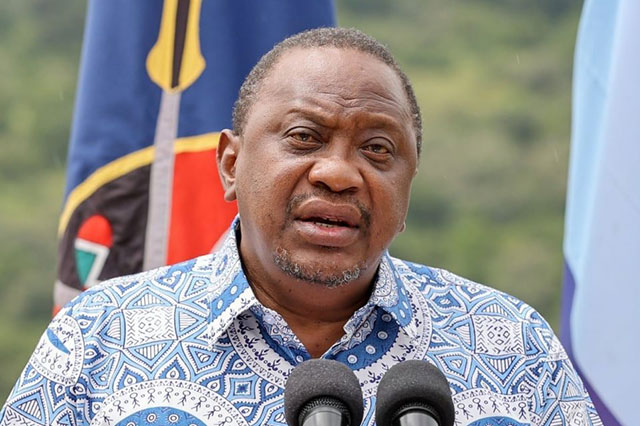Nairobi – Rwandan President Paul Kagame has joined calls for advancing M23 rebels in the Democratic Republic of Congo (DRC) to cease fire and withdraw from captured territory, Kenya’s former leader Uhuru Kenyatta said.
Kenyatta, who left office in August, is now mediating in the conflict in the volatile east of the DRC on behalf of the seven-nation East African Community regional bloc.
The fighting has displaced thousands of people and revived regional tensions as the M23, drawn mostly from Congolese Tutsis, has seized swathes of territory across North Kivu.
“Kenyatta, in discussion with President Kagame, agreed on the need for an immediate ceasefire,” a statement from Kenyatta’s office said late Friday after a phone call between the two men.
“President Kagame also agreed to assist the EAC facilitator to urge the M23 to ceasefire and withdrawal from captured territories,” it said in a statement issued in English.
Kinshasa accuses Rwanda of backing the M23, something that UN experts and US officials have also pointed to in recent months.
ALSO READ | Rwanda accuses DRC jet of violating airspace
Kigali disputes the charge, accusing Kinshasa in turn of collusion with the FDLR, a former Rwandan Hutu rebel group established in the DRC after the 1994 genocide of mainly Tutsis in Rwanda.
Kenyatta also spoke by phone with UN Secretary General Antonio Guterres and appealed for the United Nations to “enhance humanitarian assistance” to internally displaced people in the eastern DRC, the statement said.
The EAC has called for peace talks to be held in the Kenyan capital Nairobi on November 21.
Kenya is sending about 900 troops to the DRC as part of a joint EAC force set up to help restore security in the east, with a first batch of soldiers arriving a week ago.
Over 120 armed groups are active across eastern Congo, many of them a legacy of regional wars that flared at the turn of the century.
The M23 first leapt to prominence in 2012 when it captured the main eastern city of Goma, before being driven out and going to ground.
But it re-emerged late last year, claiming that Kinshasa had failed to honour a pledge to integrate its fighters into the army, among other grievances.
Follow African Insider on Facebook, Twitter and Instagram
Source: AFP
Picture: Twitter/@ngunjiriwambug
For more African news, visit Africaninsider.com


